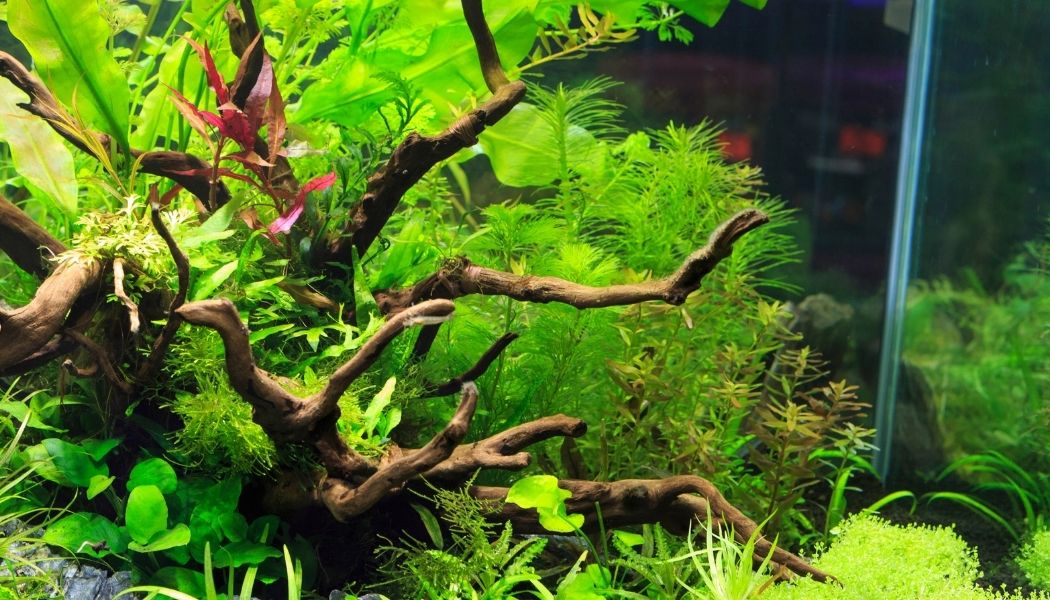1
/
of
2
African Lungfish
African Lungfish
Regular price
$89.99
Regular price
Sale price
$89.99
Unit price
/
per
Shipping calculated at checkout.
Couldn't load pickup availability
Look up oddball freshwater fish, and the prehistoric African Lungfish is one of the first things you'll see. Unique on the outside and the inside, they sport an eel like appearance and get the name lungfish from their two human like lungs. African Lungfish are native to the slow moving waters of West & South Africa. Because they are found in swamps and small rivers that dry up often, Lungfish have an adaptation where they have gills that extract oxygen from the water and lungs that extract oxygen from the air. When the body of water the Lungfish is in begins to dry up, the Lungfish will enter a state similar to hibernation. They start by digging themselves into the mud and secret a layer of mucus around their body, creating a cocoon where it will remain inactive and use its lungs to breathe through a small tunnel in the cocoon. The Lungfish can live in the cacoon out of the water for three years, but it typically only takes a few months for the rain to refill the swaps and rivers with water. These fascinating adaptations are the reason why Lungfish have survived extreme conditions leading them to be around for almost 400 million years now.
Lungfish can grow up to 3.5 feet long in the wild, but it's more likely for them to grow to be 2 Ft long when kept in captivity, and they can weigh in at almost 8-10 pounds. Because of their large size, you will need a large aquarium, but Lungfish are not very active creatures, so you can keep them in an aquarium of about 75 gallons. Still, nothing smaller is recommended, and as always, the bigger the aquarium, the happier your fish will be.
When setting up an aquarium for your African Lungfish, a soft substrate, perhaps like sand or a substrate similar to soil, is recommended. Think about throwing in driftwood and rocks that are not too sharp to make your Lungfish feel at home. Make sure you have a tight lid because they can easily use their arm like limbs to lift themselves to the surface and jump out of your aquarium.
Lungfish are best kept alone due to the fact they don't get along with other Lungfish or any other fish. Some hobbyists take the risk of housing lungfish with other fast moving species of fish, and they can sometimes coexist without any issues for long periods. Still, Lungfish are very unpredictable and, without warning, will turn on their tank mates and use their powerful jaws to bite chunks out of their fellow tankmates.
African Lungfish are omnivorous. Not being picky eaters at all, Lungfish eat a varied diet of fish, frogs, tree roots, and other plant matter in the wild. When the African Lungfish is in its cocoon, it can go up to 3 years without food. In captivity, Lungfish are relatively easy to feed and adapt to foods such as frozen krill, Repashy, and algae wafers.
A living fossil, these ancient fish are a very hardy species, and they have to be able to survive as long as they have. How many people can say they have something prehistoric living in their house?
Lungfish can grow up to 3.5 feet long in the wild, but it's more likely for them to grow to be 2 Ft long when kept in captivity, and they can weigh in at almost 8-10 pounds. Because of their large size, you will need a large aquarium, but Lungfish are not very active creatures, so you can keep them in an aquarium of about 75 gallons. Still, nothing smaller is recommended, and as always, the bigger the aquarium, the happier your fish will be.
When setting up an aquarium for your African Lungfish, a soft substrate, perhaps like sand or a substrate similar to soil, is recommended. Think about throwing in driftwood and rocks that are not too sharp to make your Lungfish feel at home. Make sure you have a tight lid because they can easily use their arm like limbs to lift themselves to the surface and jump out of your aquarium.
Lungfish are best kept alone due to the fact they don't get along with other Lungfish or any other fish. Some hobbyists take the risk of housing lungfish with other fast moving species of fish, and they can sometimes coexist without any issues for long periods. Still, Lungfish are very unpredictable and, without warning, will turn on their tank mates and use their powerful jaws to bite chunks out of their fellow tankmates.
African Lungfish are omnivorous. Not being picky eaters at all, Lungfish eat a varied diet of fish, frogs, tree roots, and other plant matter in the wild. When the African Lungfish is in its cocoon, it can go up to 3 years without food. In captivity, Lungfish are relatively easy to feed and adapt to foods such as frozen krill, Repashy, and algae wafers.
A living fossil, these ancient fish are a very hardy species, and they have to be able to survive as long as they have. How many people can say they have something prehistoric living in their house?
Share


Shop More
-

Freshwater Aquarium Fish
Fish ship out on Mondays and Tuesdays to ensure their safety during their...
-

Live Aquatic Plants
Plants ship out on Mondays and Tuesdays to ensure their safety during their...
-

Fish Tank Supplies
All orders are shipped out on Mondays and Tuesdays. Find everything you...
-

Aquariums & Stands
Looking to upgrade your setup? Visit Natural Environment Aquatix in Jacksonville, FL...
1
/
of
7







